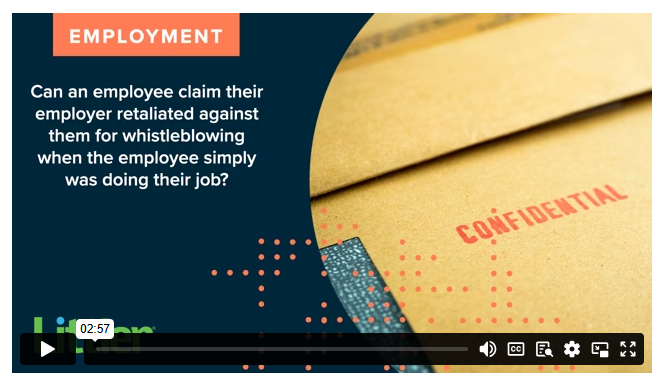- within Real Estate and Construction and Transport topic(s)
- with Inhouse Counsel
Can an employee claim retaliation for whistleblowing when they were simply doing their job?
Assume the following, you ask your company's in-house counsel to handle a highly sensitive matter involving bribery of foreign officials. The employee is given access to confidential attorney-client privileged information concerning the scope of the alleged wrongdoing. The employee makes a host of recommendations to remediate the problem.
Many are adopted but some are deemed unnecessary. The employee later applies for a promotion. They don't get it. Weeks later they sue, claiming the company retaliated against them for "whistleblowing."
Can the employee do this? After all, weren't they simply "doing their job?"
The answer is "it depends." Employers of all sizes rely on these "trusted employees." They include HR professionals, compliance officers and in-house counsel. The courts are divided on whether "trusted employees" can meet the necessary first element of a retaliation claim, which is engaging in "protected activity."
Here's why. Those courts that find they have not engaged in protected activity reason that such individuals merely engaged in "duty speech" and never "stepped out of their role" such that they were merely doing their job. Conversely, other courts have concluded that the public policy behind "whistleblowing" permits these individuals to advance their claims.
The situation becomes particularly thorny in cases like our hypothetical which involves in-house counsel who seek to use attorney-client privileged information to support their retaliation claim.
Whether they can do that depends entirely on the ethical rules governing their conduct as an attorney. Yet those very rules are state-specific and provide divergent answers to the very question at issue.
So what is the big takeaway for employers dealing with trusted employees? Understand that it's critical to consult with counsel before taking an "adverse action" against these individuals.
The answer will often hinge on a variety of factors including the geographic location, whether the company is private or publicly traded and the industry in which the company operates.
The content of this article is intended to provide a general guide to the subject matter. Specialist advice should be sought about your specific circumstances.



